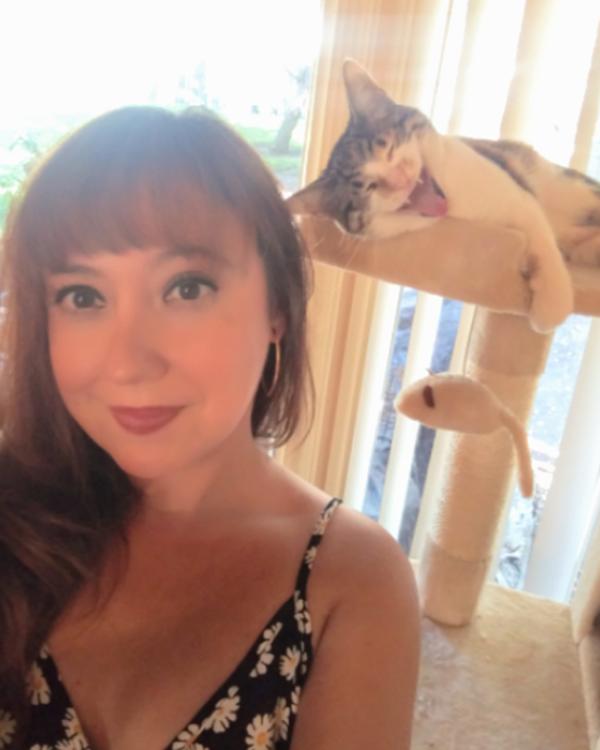
Valerie Valdez is a doctoral student in the Department of Education, with an emphasis in Teacher Education and Professional Development. Her research interests include teacher educator pedagogy and teacher candidate development, with particular focus on the supervisory conferences between teacher educators and teacher candidates. Valerie is also interested in classroom interaction, the development of rapport between teacher and students, and its role in creating an equitable learning environment. Prior to attending UC Santa Barbara, Valerie worked as a second and third grade teacher in Sacramento and as clinical faculty with Alder Graduate School of Education.
GGSE: How have you been killing time since the campus shutdown?
Valdez: I did what a lot of people probably did and got a pet! My cat's name is Penelope, and she's just the best little companion. She is super cuddly, does these cool 360 jumps that I clap at every time, and loves climbing to the tops of my kitchen cabinets (despite the very expensive cat tower that I got her, psssh).
I've also spent a lot of time cooking. I'm not vegan, but for whatever quarantine-induced reason, it's become my mission to become a solid vegan chef. I love when I can take a recipe that typically has animal products, make it vegan, and have it come out awesome—that's very thrilling for me. I live life on the edge, clearly. I also play my guitar. I strum chords like I'm in a beginning guitar class, but hey, I do it!
GGSE: You've already worked as an elementary school teacher. How does your experience in the classroom inform your research and studies?
Valdez: Working with my students reinforced the idea that children are incredibly capable and can lead their own learning! I remember being amazed at the ideas that my students came up with, the ownership that they had in the classroom, and the way that they worked together and felt a sort of responsibility to support each other. Some of my proudest moments in the classroom were the moments that I realized that my students didn't need me, and I think it's in that "zone" that curiosity is really stoked and authentic learning can occur. While this may sound somewhat hands-off, I think that it's critical to unpack the prerequisite teaching skills and knowledge that enable a more student-centered learning environment to be fostered. I believe that these teaching skills are best learned through the cultivation of softer skills such as collaborating, asking questions, and being vulnerable and willing to admit what we don't know. Part of my research focuses on how new teachers are supported in becoming reflective practitioners who don't strive for perfection, but who question and adapt their practice to fit the constantly changing needs of their students.
I don't feel that I can talk about the importance of adaptability in the teaching profession without immediately thinking about the teacher candidates, teacher educators, support staff, and students who are redefining what it means to be adaptable during this time. Their resilience, flexibility, and ingenuity inspire me. I feel like the work they're doing is going to reveal nuances in teacher education that we had perhaps never considered, and I truly feel that it's going to alter the course of the teaching profession for the better.
GGSE: You're interested in classroom interaction and how teachers interact with students. What originally interested you about that subject?
Valdez: I believe that all people just want to be understood and truly seen, and the same goes for students in a classroom. As a teacher, I suppose that I became fascinated by the seemingly "small" things that my students positively responded to, the tiny things that I wouldn’t have thought would have resonated with them so profoundly. A comment that I thought I'd made to myself that my students heard and found hilarious, a goofy smile, an off-the-cuff compliment at recess, a super bad joke (which they told me was bad, of course). These spontaneous, idiosyncratic things that I did seemed to count so much more than many of the community-building activities that I'd spent so much time planning out—it made me wonder about the nature of building relationships with students, and the micro, utterance-level, nonverbal behaviors that go into that, and that's something I am fascinated by today.
GGSE: Who, living or dead, do you most admire?
Valdez: My mom, hands down. She's brilliant, hardworking, beautiful, warm, hilarious, charming, and very cool. Plus, her desserts are the absolute best! She's also an incredible and beloved teacher. Watching her teach and connect with students influences my work today.